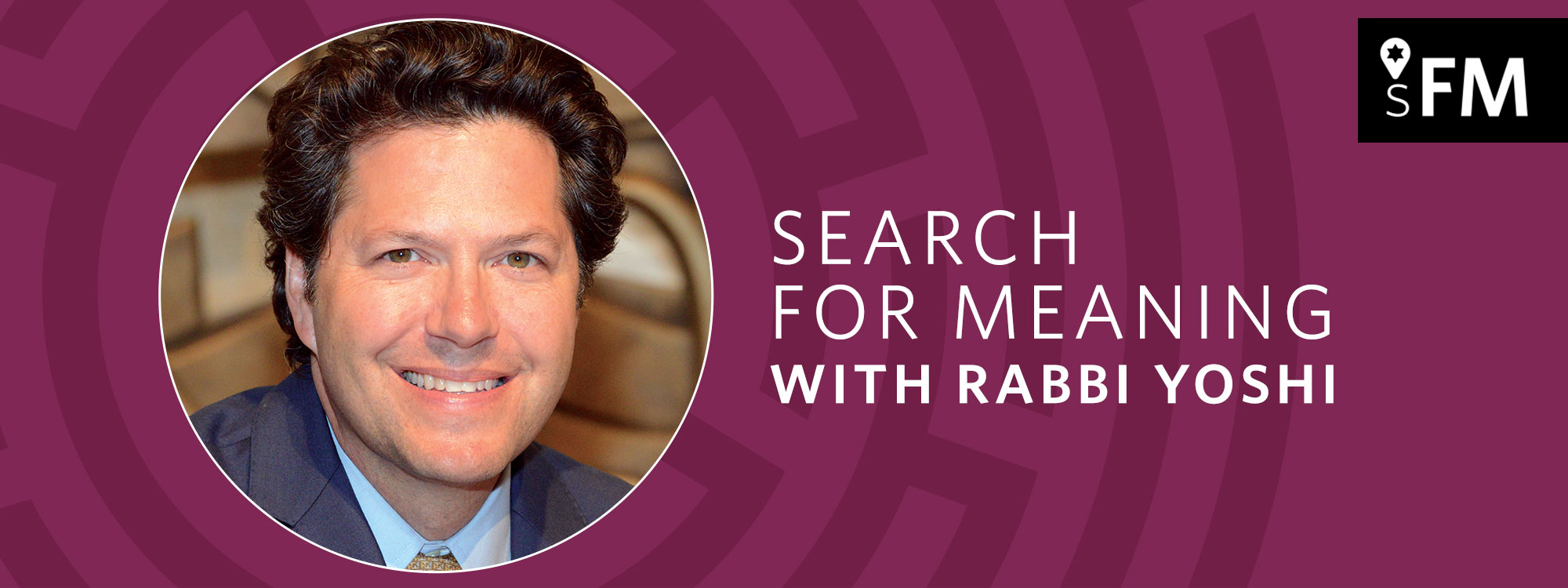In the latest edition of his Search for Meaning podcast, Stephen Wise Temple Senior Rabbi Yoshi Zweiback hosts 9-year-old actress Romy Fay Rosen, who is currently playing the roles of Young Sally and Mimi in the acclaimed Broadway production of “Leopoldstadt.”
The play, which follows a Viennese Jewish family from 1899 through 1955, grapples with the aftermath of the pogroms, assimilation, civil liberties, infidelity, Bolshevism, the rise of the Third Reich, and the devastation wrought by the Shoah. Together, Romy and Rabbi Yoshi—who attended college with Romy’s father, officiated her parents’ wedding, and attended her baby naming—explore how she got into acting, the casting process, balancing work and school, and how such a young actress (despite a lengthy resume) experiences the very personal adult themes in the show.
From singing songs from “Annie” at age 2, to starring as Elsa in a community theater children’s production of Disney’s “Frozen” at age 4, Romy has built an extensive body of work, performing in commercials, short films, animated projects, and television series.
Last year, she starred in the award-winning short film “Yes, Chef” (2021), and recently appeared on “Home Economics” (ABC, 2022) and “Face’s Music Party” (Nick Jr., 2022). She can be seen in the major recurring role of Luisa Dubin on the new AppleTV+ series “Best Foot Forward” (2022), and as series regular Leeli in the streaming animated series “The Wingfeather Saga” (2022-23). Soon, Romy will appear in two national commercial campaigns and she’ll lend her voice to another streaming animated series. The actress-singer-songwriter plays ukulele and piano, and will also soon be releasing an album of original songs.
Romy prides herself on finding ways to relate to the characters she plays in order to make her portrayal more real, and, she says, “more like I am this character.” That task takes on a new dimension in “Leopoldstadt,” which is based on the real-life Holocaust experiences of playwright Tom Stoppard’s family.
Romy did not initially know that the play was about the Holocaust during the audition process, or what the Holocaust even was. Then she began rehearsals for her dual roles, playing two members of the same family decades apart—one in 1899 (Sally), and the other in 1938 (Mimi).
“I didn’t audition for the scary, getting-kicked-out-of-their-house part,” Romy says. “I auditioned for the happy-girl-during-Christmas part at the beginning of the play.”
In order to bring her 1938 character to life, she drew from her own family’s story.
“When we started rehearsals, I had this book about the Holocaust, because my mom and my dad wanted me to learn about the family history,” Romy says. “I was getting to that age. I was getting to 9 and 10, which is when I should learn about my family history. It’s a dark, dark past. They wanted me to know what went on back then.”
After reading the book and discussing it with her mother, Romy researched even further. She is currently in the middle of reading “The Diary of Anne Frank,” and read a graphic novel about her life.
“My ancestors … they experienced that, too,” Romy says.

